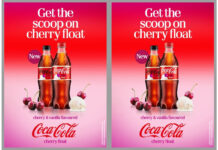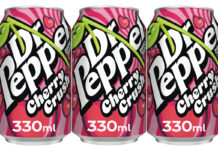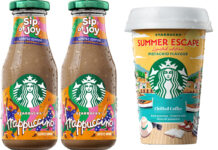Energy drinks have been a huge success for convenience retailers and a number of other types of functional drinks have made progress in recent years. But, at a time when soft drinks form a significant part of government health agendas and after a period when consumers’ disposable income has been under pressure, how is the market shaping up and how can retailers make the best of the growing number and types of functional and energy drinks?
INNOVATION, flavours and producer responses to consumer health concerns are helping energy drinks perform ahead of the overall soft drinks market according to the category’s manufacturers.
And they see convenience stores as a key channel for future sales growth.
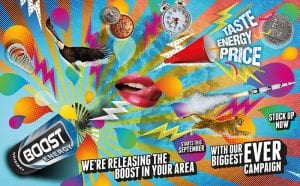
Red Bull’s category development manager Rich Fisher said: “As the number one sub-category in independents, symbols and forecourts, the sports and energy sector has continued to drive growth in the three years to 2015, thanks to an increased spend from functional energy drinkers.
“This trend is set to continue with the category expected to grow 10%, to £1.37bn by 2019.”
He added, quoting IRI research, that Red Bull is currently growing by 7.9% in value and 10.3% in volume but says that the sports and energy category remains flat making Red Bull the leading functional energy drink.
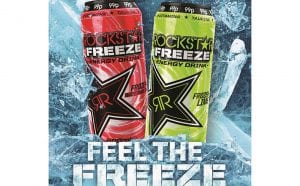
The firm sees flavours as providing the key opportunity to bring new consumers into the category, that its Tropical edition was the best-selling new energy SKU to launch in 2015 and that its success had inspired the introduction of a another flavour.
Fisher said: “Red Bull has extended its Editions range with a brand new Orange Edition following the successful introduction of Red Bull Tropical Edition.
“Orange is the number one soft drinks flavour, and crucial within the sports and energy sector where it accounts for over 40% of flavoured drinks sold.”
Red Bull says it has three of the top five branded SKUs within diet or low-sugar energy drinks.
Again referring to IRI research, it says Red Bull Sugar Free Original 250ml is number one, Red Bull Sugar Free 250ml four-packs is in fourth place and Red Bull Zero in fifth.
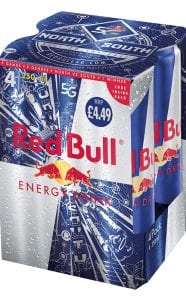
• Boost says its sugar-free sales grew by 17% in the 12 months to January 2016 and, quoting IRI, says its 50ml sugar-free can is the fastest selling sugar-free energy drink.
A spokesperson said: “Sugar-free sales are growing at a phenomenal rate following the move within a number of consumer groups to eat and drink less sugar.
“Containing just five calories in the 250ml can, Boost invested considerable time and money developing Sugar Free Pink Lemonade, which is selling especially well.”
And the brand says it has a programme of marketing initiatives to thank the independent sector for 15 years of support.
The spokesperson said: “Retailers can win £25,000 in cash and free product as part of the brand’s reward to its loyal independent customer base.”
The anniversary campaign also gives retailers the chance to win prizes of 15 cases of product, £15 Boost vouchers and £15,000 in cash.
And fifteen special anniversary crystal bottles, which can each be redeemed for £1,000 cash, will also be hidden among stock.
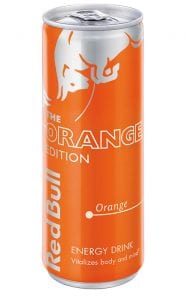
Boost says that of the top 100 best-selling energy drinks, 67 are price-marked packs and that PMPs are growing faster than plain pack.
The spokesperson said: “Price-marked packs can enable independents to compete effectively by offering a price point in line with retail multiples, demonstrate value for money and make a reasonable margin.
“Boost is the number-two stimulation energy brand in the UK and 86% of our sales are price-marked.”
• The energy category is worth £1.3bn in Scotland, making it hugely important for retailers, said Adrian Troy, head of marketing for AG Barr.
He added that although sugar is an important component of energy delivery for the majority of energy drink users, a growing number of consumers are looking for a lower-calorie or sugar-free option.
He said: “The low-calorie energy market is currently worth £8m and is estimated to grow significantly over the next five years.
“Currently 49% of all carbonated soft drinks sold are low or no-calorie and there is a growing demand for these drinks in the energy sector.
“The low-calorie energy market is currently worth £8m and growing at 13%.”
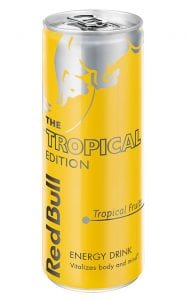 Barr launched Rockstar Pure Zero to meet demand for a low-calorie flavoured energy drink.
Barr launched Rockstar Pure Zero to meet demand for a low-calorie flavoured energy drink.
Among its new products Barr has introduced a Pineapple and Coconut flavour to its Rockstar Freeze range.
Troy said: “Energy is a hugely important category with more than one in three soft drinks purchased being an energy drink. Big-can flavoured energy continues to drive the category and within this Rockstar flavours are the star performers, growing by 27% in the last two years.”



